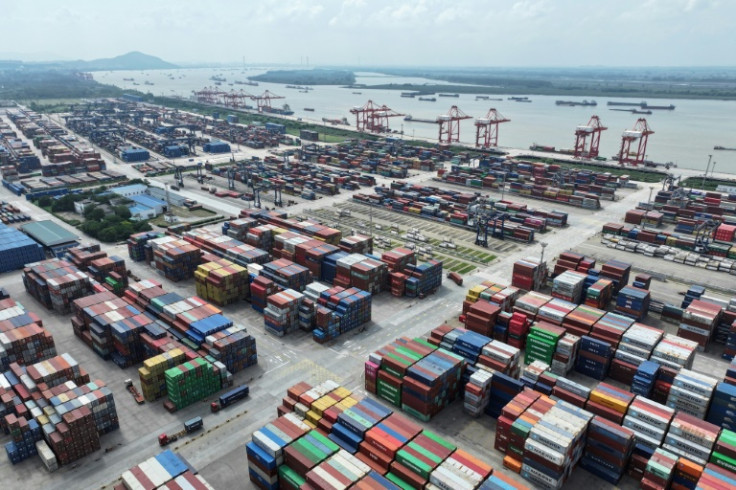China's Economic Problems Begin At The Top

China's persistent economic problems of sluggish growth, faltering exports, soaring youth unemployment and sinking property and equity markets begin at the top — the Soviet-style policies pursued by its leadership.
Once upon a time, China's leadership could swiftly address the country's economic problems. It could quickly turn economic slowdowns into booms.
That was in the first three decades following the country's opening to international trade and capital. It was a period when Chinese leaders departed from the old Soviet-style policies for pro-market policies that shifted economic power from the top to the bottom to the people.
In addition, these policies eased geopolitical tensions with the U.S. and its allies, which helped the country's exports grow by leaps and bounds. At the same time, they attracted scores of European and U.S. companies eager to capitalize on the country's cheap labor force.
An excellent example of the ability of China's leadership to deal effectively with economic problems during that period is the Great Recession of 2008-9. Then, the country's swift monetary and fiscal stimulus "saved" its economy and the world.
Nowadays, China's leadership must find a way to place the economy on a sustainable growth path, deal with a property crisis and faltering exports and provide jobs for the millions of unemployed and underemployed young people.
Economists have come up with several explanations for why the country's leadership has lost its magic in addressing its economic problems.
One of them is that China's economy is in the "middle-income trap," where a country's growth rate slows down as it reaches middle income.
Another is Lewis Point, where the pool of excess labor trapped in agriculture dries up. As a result, it pushes wages higher, eliminating the country's competitive edge in labor-intensive industries. For instance, Chinese labor has become too expensive compared to Vietnam, India and Indonesia.
A third explanation is that China's economy gets increasingly bigger and more complex, making it harder to grow as fast as in the old days when it was small and simple.
Juscelino Colares, professor of business law and co-director of the Frederick K. Cox International Law Center, disputes this thesis. He believes China's economic problems begin at the top, with the resumption of the old, centralized policies.
"While one can say that integration to world markets has made the Chinese economy far more complex than it was in the 1970s, the problems that plague the Chinese economy today are due neither to its size nor complexity," he told International Business Times. "Rather, they result from the CCP's [Chinese Communist Party] insistence on suboptimal command-and-control policies (as opposed to market-based measures) that favor political stability, the continuation of past policies, and the maintenance, if not increase, of every means of social control (social-credit scores, facial recognition)."
Colares thinks the rigidity of the CCP's statist policies and insistence on total control has constrained the smooth adjustment to internal and external shocks. He mentions as a good example the COVID shock (first abroad, then later in China) and the reorganization of supply chains (a clear sign of Westernderisking away from China's bellicose geopolitical moves).
"Xi Jinping's unwillingness to move away from the now fairly dated export-led growth model (which, yes, turned China from an agricultural to an industrial behemoth) has created a real estate bubble that has been deflating," Colares added. "Thus, affecting employment opportunities, adding to the demographic (the graying of the Chinese population) and middle-income challenges that China now faces."
He believes the solution is market reforms, which the CCP has avoided at all costs for regime survival and the maintenance of social control. "Complexity is not the problem, " Colares added. CCP rigidity is."
Tenpao Lee, professor emeritus of economics at Niagara University, believes China's leadership can learn a lesson from the U.S. in running its economy. "For example, given the chip war between China and the USA, China should learn from the USA to have free trade agreements with Russia and other countries, comparable to the NAFTA [North American Free Trade Agreement]," he said.
Lee thinks China's system allows The Top to rule over the economy's private sectors directly with the central planners' visible hand rather than the invisible hand based on self-interested individuals. "This could be a double-edged sword to enhance efficiency or cause misallocation for China's economy," he added.
© Copyright IBTimes 2024. All rights reserved.












